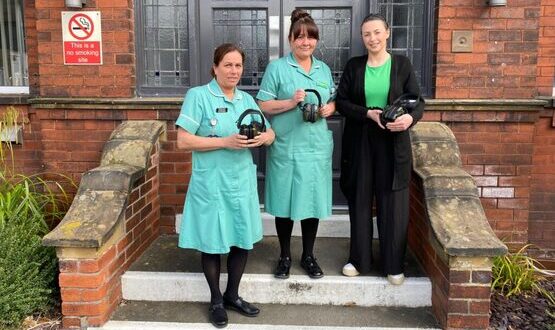Bolton picks Allscripts in £30 million EPR deal
- 16 August 2017

Bolton NHS Foundation Trust has signed with Allscripts in a multi-million pound electronic patient record EPR deal.
The trust will deploy Allscripts Sunrise EPR, with work beginning next month and the first phase due to go-live in spring 2019.
The selection of Allscripts means Bolton follows in the footsteps of a growing cluster of neighbouring trusts in and around Manchester, and Liverpool and Merseyside.
At the centre of the Greater Manchester cluster is Salford Royal NHS Foundation Trust, a global digital exemplar and Allscripts’ NHS reference site.
Ken Bradshaw, deputy chief informatics officer at Bolton, said the 15 August signing has been in the pipeline for some time.
“Signing this contract is the result of months of hard work behind the scenes preparing our systems and teams for this investment”, he said.
“The new technology will provide a seamless process, and make it so much easier for our clinicians to access a single, detailed and up-to-date view of a patient’s health record.”
Neighbouring Wrightington, Wigan and Leigh NHS Foundation Trust went live in June last year with Allscripts’ Sunrise EPR. And University Hospital of South Manchester NHS Foundation Trust went live with the same system in 2016.
When Wrightington, Wigan and Leigh chose Allscripts in September 2014, only Liverpool Heart and Chest Hospital NHS Foundation Trust and Salford Royal NHS Foundation Trust had gone live with Sunrise in the English NHS.
Commenting on Bolton’s choice, Steven Brain, vice president and managing director of Allscripts, said his company’s “innovative solutions and proven delivery capability in the UK created a compelling reason for the trust to select Allscripts as their partner”.
Digital Health News understands that the recent deployment of the open source EPR, OpenEyes, in the ophthalmology department will eventually feed into the hospital’s overall EPR.
Bolton deployed OpenEyes in January and David Haider, consultant ophthalmologist and chief clinical information officer at the trust, told Digital Health News in March that it was a slow deployment as “we’re running from a fairly digitally immature trust”.
Bolton provides patient care at Royal Bolton Hospital and at over 20 health centres and clinics, and has one of busiest A&E department in Greater Manchester.





14 Comments
Will be interesting to see if the Trust will retain hosting or move to Azure as planned by Salford – Be a brave step but its been coming for a while.
Congratulations to everyone involved in overcoming the seemingly never-ending obstacles which have frustrated the Trust’s leadership team’s ambitions in recent years. I hope the implementation goes smoothly.
I’d be interested in the usability scores of all the major players. The NHS needs to measure these things regularly or better still have someone independent do it for them. It would be nice to start with the GDE trusts, get a baseline and then measure the effect of being granted GDE status. There is too much anecdote and not enough science in this space.
Agree.
Simple list of measures to check it supports clinicians and health administrators.
I’m sure I’m not the only health tech who similarly judges EPR’s this way:
what HL7v2 messaging does it support
what datatypes are supported (is it really a PAS?)
does it use SNOMED(/other) to record conditions, procedures, observations and careplans
does it support an INTEROpen Care Connect FHIR API
Here you go Joe – http://www.healthcareitnews.com/news/see-highest-rated-ehrs-usability
Not an NHS score, but independent.
Cheers
Dave
All these requirements can be (and usually are) included in a Trust’s list of requirements agreed between all stakeholders during the early stages of a procurement. It is pointless shopping for a system if you haven’t agreed with your clinicians exactly what their current and future requirements are.
A selection is then made of the best fit to those requirements from the bidding suppliers.
The interesting bit is balancing what a Trust wants, with what it actually needs and what it can reasonably afford 🙂
I would be interested to know what procurement mechanism this went through?
£30m is a lot of money, I am not interested in the procurement mechanism, £30m should be more than enough to make a success of it. I would be interested to know when the people who the Trust serves will have access to the EPR via a patient portal?
Portals are so 2000. I need an API so I can access my data and use apps and services I want to use not some janky clapped out NHS service.
yep, you and me alike (but an API @ the national level) however i think non techies (i.e. the vast majority of people) might find it easier2access their data using a portal
I know where you are coming from but I disagree. Individuals don’t engage with the API. A good UX sits on top of that.
When using facebook you never think this is a complicated API.
So you may still have a portal, but it can be provided by any vendor or the same vendor. At the same time other apps and services can sit along side this.
So sure have your portal, but it must be on patient facing RESTful APIs with authentication services so that other apps and services can be used alongside it.
A portal slams the door on industry and innovation.
i agree, extremely frustrating isn’t IT, enough to drive you mad ☺
Yep that’s pretty straight forward. Trusts can have a portal if they want but to help prevent them being locked into the vendor. The vendor MUST provide a NHS CareConnect API or have a good reason for not doing so.
Allscripts, epic and cerner, Emis, tpp, Microtest, and INPS all have a head start on this but 6 months is more than enough for others to catch up.
The proposed pragmatic procurement route is described in the Trust’s Informatics strategy, which is in the public domain.
http://www.boltonft.nhs.uk/wp-content/uploads/2016/07/Bolton-Informatics-Strategy-Forward-View-V1-4-18-5-2016-for-review-by-board-26-05-2016.pdf
Comments are closed.